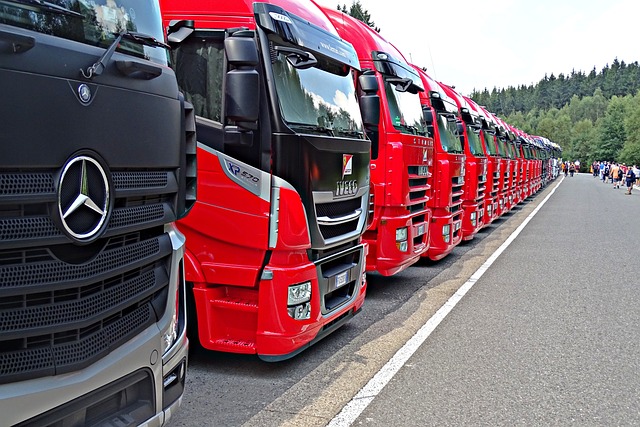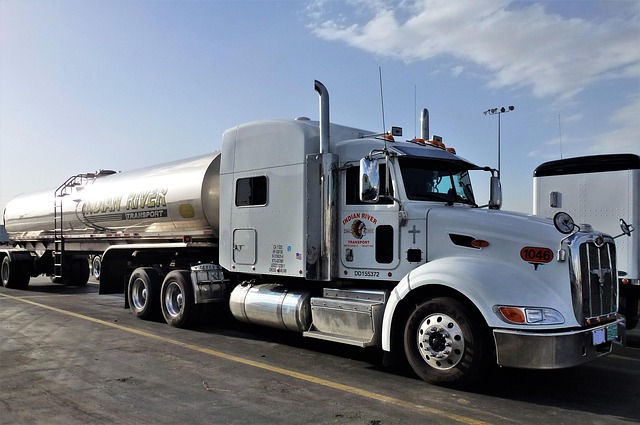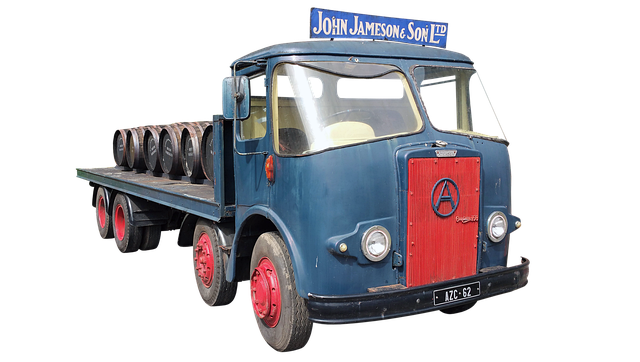Looking to register your car in California? This guide breaks down the process step-by-step. First, understand California’s unique car registration requirements, including the need for successful VIN (Vehicle Identification Number) verification. Gather essential documents and perform a VIN check with the DMV or online. Next, choose the right registration type based on your vehicle’s classification. Finally, submit your application and pay fees to ensure your car is legally registered in the Golden State.
- Understand California Car Registration Requirements
- Gather Necessary Documents for VIN Verification
- Perform Vehicle Identification Number (VIN) Check
- Select an Appropriate Registration Type
- Submit Application and Pay Fees
Understand California Car Registration Requirements

Before registering your car in California, it’s crucial to understand the state’s specific requirements. One key aspect is ensuring accurate and up-to-date vehicle information, which includes a valid Vehicle Identification Number (VIN) verification. This process confirms the vehicle’s make, model, year, and other critical details. California requires this verification as part of its registration procedure to prevent fraud and ensure compliance with vehicle regulations.
A mobile VIN verifier or inspector can play a significant role in this process by providing on-site inspections. These services allow you to get your VIN checked promptly, ensuring all data is correct before submitting your registration application. This approach saves time and effort compared to traditional methods, making it especially convenient for out-of-state residents transferring their vehicles to California.
Gather Necessary Documents for VIN Verification

To register your car in California, you’ll first need to gather all the essential documents for a successful VIN verification. This process ensures that your vehicle’s identification number (VIN) is accurate and matches the make, model, and year of your car as per the manufacturer’s records. One convenient way to facilitate this is by utilizing a mobile vin verifier; these services send an inspector to your location to complete the check. The inspector will verify key details such as the VIN plate on your vehicle against the data in national databases.
Additionally, you’ll require documents like the title of ownership, registration certificates from previous states (if applicable), proof of insurance, and a valid driver’s license. When preparing for your vin inspection, make sure all these papers are readily available to streamline the registration process at your California Department of Motor Vehicles (DMV) office.
Perform Vehicle Identification Number (VIN) Check

Before registering your car in California, it’s crucial to perform a Vehicle Identification Number (VIN) check. This process verifies the vehicle’s history and ensures it has not been reported as stolen or had any outstanding issues. You can conduct a VIN inspection at a local DMV office or opt for a mobile VIN verification service, which allows you to complete the check from the comfort of your home or workplace.
A mobile VIN inspection is particularly convenient for busy individuals who may not have time to visit a DMV branch. This service sends a specialized technician to your location who will use advanced tools to cross-reference your vehicle’s VIN with national databases, providing you with instant and accurate results. By completing a VIN verification, you’ll have peace of mind knowing that your car is legitimate and roadworthy before proceeding with the registration process in California.
Select an Appropriate Registration Type

When selecting a registration type for your vehicle in California, understanding the different options is key. The appropriate choice depends on factors like the age of your car and its intended use. For newer vehicles, a traditional in-person registration at a DMV office might be sufficient. However, for older cars or those with unique circumstances, specialized registration paths exist. One important consideration is whether you need to undergo a VIN verification process.
This is especially relevant when using services like a mobile VIN verifier or conducting a VIN inspection, which can help streamline the registration process. These methods ensure the vehicle’s identity and history are accurately checked, crucial for ensuring compliance with California’s regulations. Whether opting for a standard or specialized registration, having your Vehicle Identification Number (VIN) verified is an essential step in maintaining legal ownership and ensuring a smooth registration experience.
Submit Application and Pay Fees

To complete the registration process, you’ll need to submit an Application for Title and Registration (Form DV-140) along with the required fees. This includes a vehicle license fee, which varies based on your car’s type and weight, plus a $25 air quality certificate fee. Before submitting, double-check that all information is accurate, especially the Vehicle Identification Number (VIN). A key step in this process involves confirming the VIN through a vin verification service. You can opt for traditional methods like visiting a DMV office or choose a more convenient option with mobile vin inspection and verification services available.
These mobile options allow you to get instant results while saving time and effort. By ensuring your VIN is valid and accurate, you streamline the registration process. With a few simple steps, including filling out the application and providing payment, you’ll be well on your way to registering your car in California.
Registering a car in California is a straightforward process once you understand the requirements and gather the necessary documents. After performing a Vehicle Identification Number (VIN) check through vin verification, selecting the appropriate registration type, and submitting your application along with the required fees, you’ll be well on your way to legalizing your vehicle in the Golden State. Remember to keep all documentation up-to-date to ensure smooth future interactions with California’s Department of Motor Vehicles.
